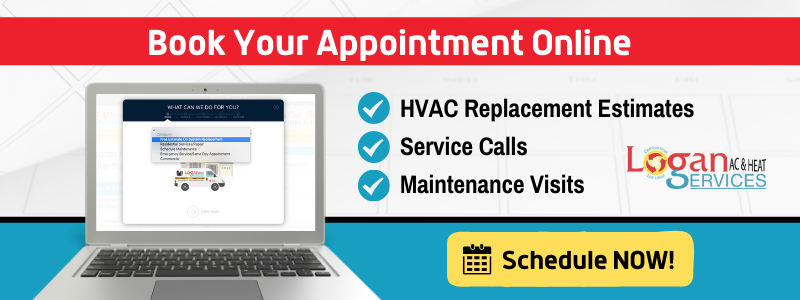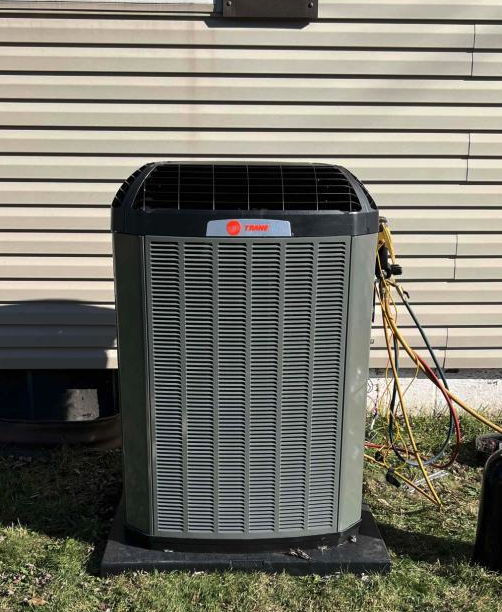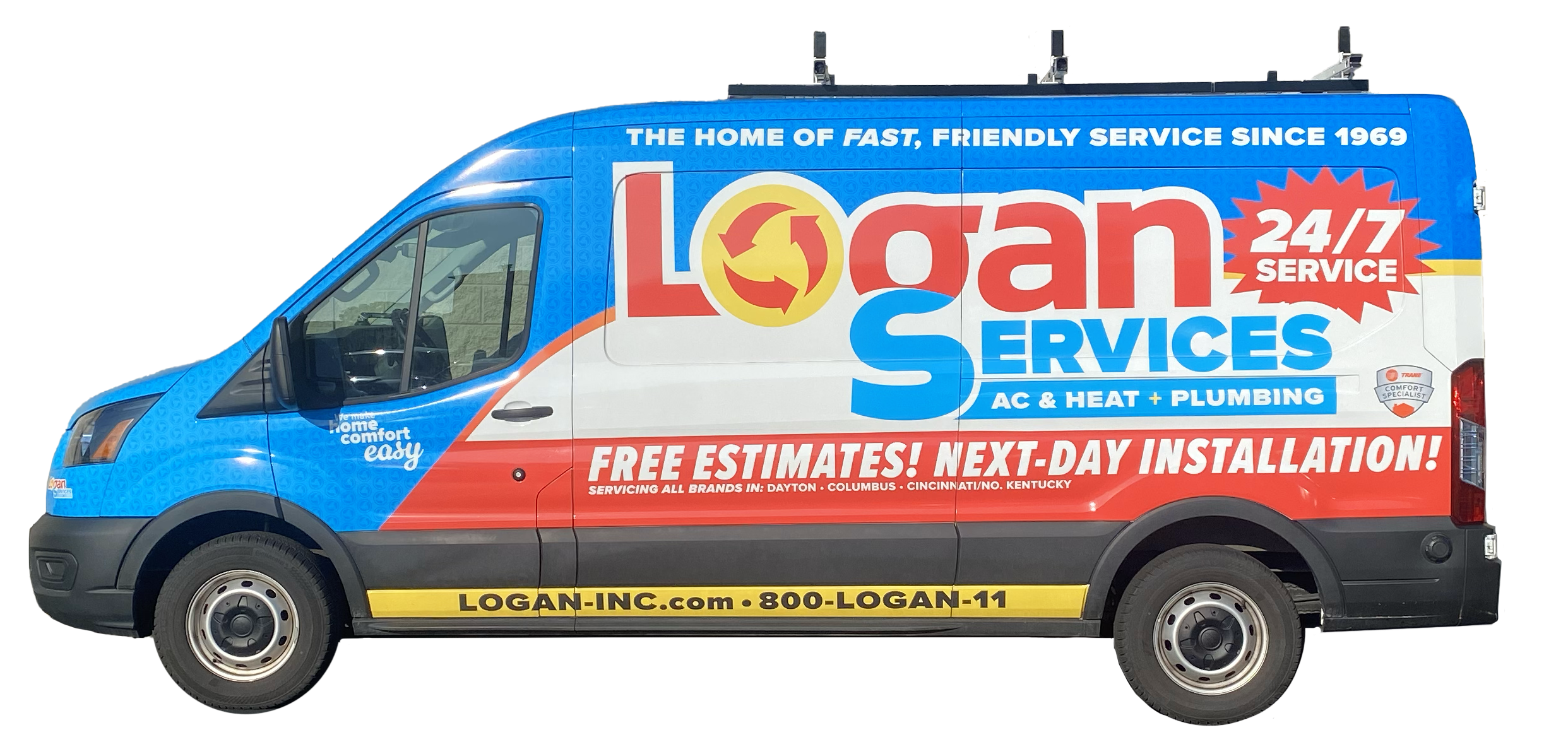Signs Your Air Conditioning Unit Is Clearly Malfunctioning
An air conditioning unit malfunction can occur in many ways. If you’ve noticed poor performance from your air conditioner over the years, it could be trying to tell you something. Some telltale signs that an AC unit is experiencing issues include:
- High humidity levels and decreased comfort
- Increased energy usage
- Strange noises coming from the system
- Warm air blowing out of your vents
- Weak or no airflow from your vents
- Ice building up on the outdoor unit
- Frequent cycling of the AC system
How quickly you act upon a cooling system malfunction can have a major impact on the resolution. If neglected, a small air conditioner issue can often lead to a bigger and more costly repair.
10 Considerations for Replacing Your Air Conditioning Unit
Getting a new central air conditioning system is not always familiar territory to homeowners, as some only complete the project 1-3 times in their lifetime. We’ve collected 10 considerations that should impact your decision on whether to invest in a new cooling unit.
- Age of Your AC System: As with many appliances and electronics, the more you use them, the less energy efficient and reliable they become. This is also true for your air conditioner. When your air conditioning system has reached retirement age (typically 12-15+ years old), you may want to start proactively preparing for air conditioning replacement.
- AC Repair Expenses: Your air conditioner may have a 10-year warranty; once that warranty expires, repairs may require additional fees for replacement parts. When repair fees are more than a third of the cost of a new HVAC system, AC replacement may be the more cost-effective solution. More specifically, if the repair includes a faulty compressor, bad condenser, or refrigerant leak, many homeowners consider a replacement air conditioner.
- Maintenance: Just like cars benefit from an oil change, your air conditioning system benefits greatly from routine maintenance. If you’ve missed regular AC tune-ups, you can expect more wear and tear on your system, which could lead to more expensive repairs or shorten the unit’s lifespan.
- Energy Efficiency: How can you tell how energy efficient your air conditioner is? While you may have started with an air conditioner’s seasonal energy efficiency ratio (SEER) rating 8-14 years ago, your HVAC system has likely lost some ground with constant summer usage and no longer operates at that rating. Switching from a 12 SEER air conditioner to a 20 SEER air conditioner replacement increases energy efficiency and savings, which could be significant for your comfort and utility usage.
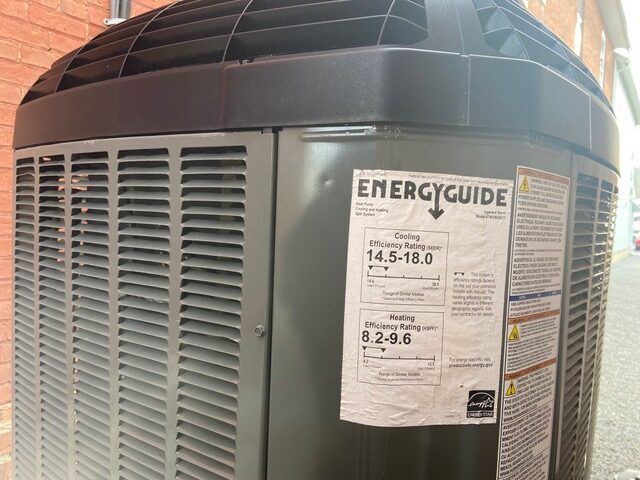
- Freon Usage: If your air conditioning system still utilizes R-22 refrigerant, it’s time to plan for replacement. R-22 freon has been phased out of production in the United States, which means higher prices for freon fill-ups when leaks occur in your coil. Costs will only continue to rise, so it’s best to position yourself with a new air conditioner that utilizes the most up-to-date refrigerant for greater availability and lower costs.
- Does Your System Meet Your Needs?: Don’t sacrifice your home comfort just to ‘make it through’ one more summer. If you’ve noticed your air conditioning unit has been underperforming and leaving you and your family uncomfortable in your home, it’s time to explore air conditioner replacement and upgrade options.
- Comfort Requirements: Understand that when you decide to replace your air conditioner, you can choose between systems that may better suit your home. If you have comfort concerns where your current cooling system falls short, address those with an expert to ensure you choose the proper air conditioner.
- Latest Technology: Educate yourself on the latest AC technology available. Look to industry leaders like Logan Services and Trane for the most advanced, high-efficiency equipment options on the market. Don’t settle for a baseline AC unit; your home comfort is worth it! Also, remember that new AC technology pairs best with a new, compatible furnace. Make the most of your HVAC system investment and plan to replace both cooling and heating equipment at the same time.
- Rebates and Incentives: Choose an HVAC contractor who offers rebates and incentives for your air conditioner replacement purchase. Manufacturers roll out seasonal rebates that dealers can offer their customers; make sure to partner with a team equipped to provide you with excellent products and any additional incentives for purchasing your air conditioning system through them.
- Lifespan of Your Home: Ask yourself: How long do I plan to live in this home? If you’re positioned in your ‘forever home,’ your air conditioning replacement should directly reflect that. Opt for high-efficiency, variable-speed technology to reap the benefits 5-10 years after AC unit installation.
Things to Consider After Replacing the AC Unit
Your research is done, and you’ve chosen the equipment and company to handle your new air conditioner replacement…now what? Here are some post-installation tips for your new air conditioning system when you choose Logan Services:
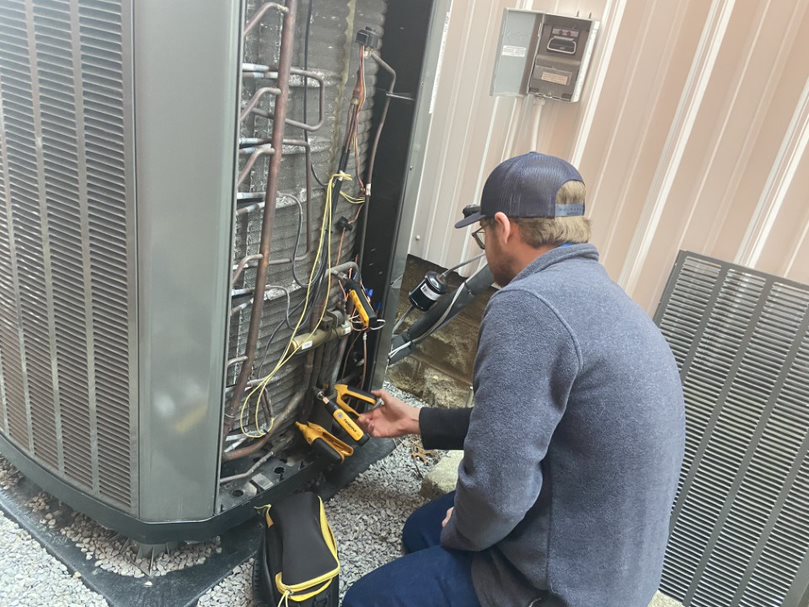
- Schedule an AC inspection with your county HVAC system inspector (if required – this varies by county)
- Set monthly reminders to change your furnace filter (we recommend changing/cleaning your standard furnace filter every 30 days)
- Keep outdoor debris (leaves, shrubs, grass clippings, etc.) away from your air conditioner for optimal energy efficiency and operation
- Schedule routine maintenance visits annually to help maintain the AC unit seasonal energy efficiency ratio
- If any cooling concerns arise, call Logan Services right away to stay on top of repairs
In summary, remember that your AC should still be on your mind after the project is completed. Neglecting routine maintenance tasks for your cooling system is one of the main reasons that air conditioning equipment underperforms or has a short life span.
Average Replacement Cost of an AC Unit
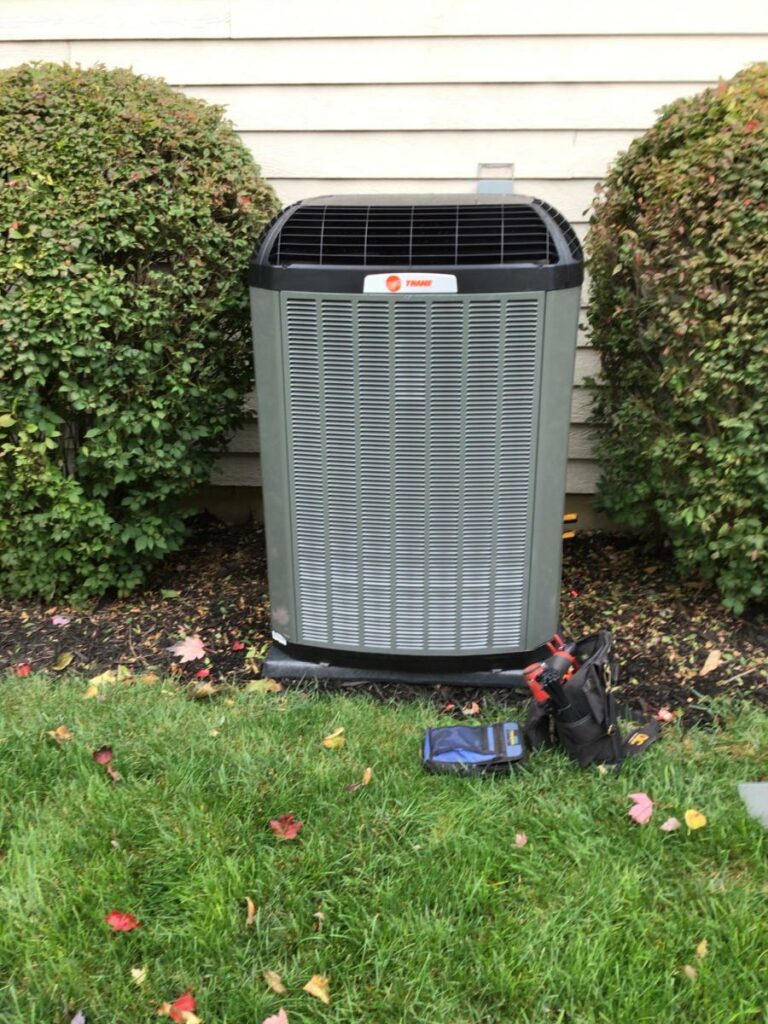
AC unit and heat pump replacement costs can range from $5,000-$15,000+, and many factors will impact that dollar amount. The most significant factors that determine central air conditioner replacement pricing are:
- Size of AC equipment needed
- Energy efficiency of new air conditioner system
- Compatible furnace installation
- Clean air products/accessories
- Availability of the products
- Promotions and rebates available on new AC units
- Quality and reputation of the HVAC installation company
Because there are so many unknown variables with the above, your budget, and what you need for your home, it’s hard to pinpoint an average cost for AC replacement. It is well worth your time to sit down with a comfort consultant from Logan Services to learn about all the new HVAC system combination options that would best improve your home comfort.
Contact our team today for a free estimate and learn about the air conditioner, furnace, heat pump, and air handler equipment that can help with your HVAC replacement project.
FAQs
Should I replace my 20-year-old AC unit?
A 20-year-old air conditioner has met the tail end of its average lifespan. If you are experiencing operational concerns, a noticeable loss in energy efficiency, or just want to be proactive, a new air conditioner replacement is an excellent choice. HVAC equipment prices have steadily increased in recent years, so replacing your cooling and heating system will likely never be less expensive than it is today.
What is the average lifetime of an AC?
If installed correctly, you can expect modern air conditioners to operate for about 12-15 years. If regular maintenance is performed and the HVAC system is well-cared for, you may even see up to 20 good years of use. Neglecting tune-ups and filter changes places a strain on air conditioning units, potentially shortening their lifespan well below the 15-year mark.
How much does an air conditioner installation cost for a 2,000-square-foot home?
The cost of air conditioner replacement depends upon the following: AC unit brand, energy efficiency levels, size (in TONS), and seasonal promotions. Even with square footage determined, there are many more details that will impact the size of your air conditioner.
The BTUs (furnace) and tonnage (air conditioner) are pinpointed through professional load calculation that looks at your home layout, windows, insulation, ductwork, etc. to land on the proper equipment capacity needed. A new AC unit, potentially paired with a new furnace for compatibility reasons, could cost anywhere between $5,000 and $15,000+ when the project is all said and done.
